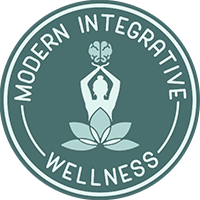Stress is a natural response to challenges in life, but when it becomes overwhelming or chronic, it can impact your well-being. Understanding how to manage stress is crucial to maintaining both physical and mental health. In this guide, we’ll explore what stress is, how it affects your body and mind, and effective ways to manage it — including therapy and medication when necessary.
### What is Stress?
Stress is the body’s response to any demand or threat, real or perceived. When you encounter a stressful situation, your body releases hormones like adrenaline and cortisol, triggering the “fight or flight” response. This can be helpful in short bursts, giving you the energy and focus to handle challenges. However, chronic stress can lead to issues, including anxiety, depression, heart disease, and sleep disturbances.
### Common Sources of Stress
Stress comes in many forms, often stemming from:
**Work pressures** or job insecurity
**Relationship challenges** with family, friends, or partners
**Financial concerns** or debt
**Health issues** affecting oneself or loved ones
**Major life changes**, like moving, losing a job, or the death of a loved one
How Stress Affects the Mind and Body
Stress can impact both your physical and mental health. Physically, stress may lead to headaches, fatigue, digestive issues, and a weakened immune system. Mentally, chronic stress can heighten feelings of worry, frustration, and overwhelm. It may contribute to anxiety, depression, and emotional exhaustion. Over time, this can affect your daily life, relationships, and ability to focus on tasks.
Effective Strategies for Managing Stress
Managing stress is about finding a balance that works for you. Here are some effective ways to handle stress:
Practice Mindfulness and Relaxation Techniques
Mindfulness involves focusing on the present moment, which helps break the cycle of anxious thoughts. Practicing mindfulness through meditation or deep breathing can calm your nervous system and improve resilience to stress.
Deep breathing exercises can activate the body’s relaxation response, lowering your heart rate and cortisol levels.
Physical Activity
Regular exercise releases endorphins, known as “feel-good” hormones, which help counteract stress. Even a short walk, yoga session, or gentle stretching can provide immediate relief.
Healthy Lifestyle Choices
Prioritize a balanced diet, regular sleep, and limit caffeine and alcohol. Taking care of your body provides a strong foundation for mental resilience.
Therapy and Counseling
Working with a therapist can be incredibly effective in managing stress. Therapy helps you identify sources of stress, develop coping strategies, and process underlying emotions.
Cognitive Behavioral Therapy (CBT), for example, is a structured approach that can help you challenge negative thoughts and replace them with healthier ways of thinking.
Group therapy and support groups also offer valuable connections and shared experiences.
Medication Management
For those experiencing persistent anxiety or stress-related symptoms that affect daily functioning, medication may be helpful. Selective Serotonin Reuptake Inhibitors (SSRIs), Serotonin and Norepinephrine Reuptake Inhibitors (SNRIs), and anti-anxiety medications can help regulate mood and manage symptoms.
Medication is typically used alongside therapy and lifestyle changes. Consulting a psychiatrist or healthcare provider will help determine if medication is appropriate for you.
Creating a Personal Stress Management Plan
Developing a plan that suits your lifestyle and needs can make managing stress more achievable. Here’s a simple framework to get started:
Identify Your Triggers: Understanding what specifically triggers your stress is the first step toward managing it. Journaling can help you keep track of patterns.
Set Realistic Goals: Don’t aim to eliminate stress entirely, as that’s impossible. Instead, focus on reducing it and developing healthier responses.
Build a Support Network: Surround yourself with people who can provide support, whether friends, family, or a mental health professional. Social connections can offer a sense of security and belonging.
Prioritize Self-Care: Schedule regular time for activities you enjoy, such as hobbies, spending time in nature, or simply relaxing.
Seek Professional Help: If you find that stress is affecting your mental health and daily life, don’t hesitate to reach out to a therapist or psychiatrist. Managing stress is not something you have to do alone.
When to Seek Professional Help
It’s important to seek professional help if:
- Your stress is affecting your ability to function at work, school, or in relationships.
- You feel persistently anxious, irritable, or overwhelmed.
- You experience physical symptoms like headaches, sleep problems, or digestive issues regularly.
- You’re using substances, like alcohol or drugs, to cope with stress.
How We Can Help
At Modern Integrative Wellness, we’re dedicated to helping you find effective strategies to manage stress. Our team of licensed therapists and psychiatrists can guide you in understanding the sources of your stress and provide personalized therapy or medication management if needed. Whether through individual therapy, group counseling, or medication, our goal is to empower you to live a balanced, fulfilling life.
Managing stress is a journey, but it’s one you don’t have to navigate alone. Taking small steps every day toward a healthier mindset can make a significant difference. If you’re ready to take the next step, reach out to us at 646-650-5032 or email us at [email protected]. We’re here to support you every step of the way.


